WSIL group
Prof. Robert W. Heath Jr.
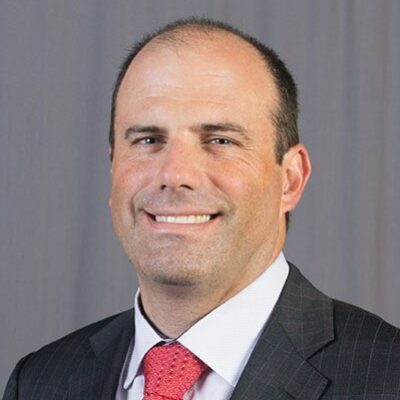
Robert W. Heath Jr. (S’96 – M’01 – SM’06 – F’11) received the B.S. and M.S. degrees from the University of Virginia, Charlottesville, VA, in 1996 and 1997 respectively, and the Ph.D. from Stanford University, Stanford, CA, in 2002, all in electrical engineering. From 1998 to 2001, he was a Senior Member of the Technical Staff then a Senior Consultant at Iospan Wireless Inc, San Jose, CA where he worked on the design and implementation of the physical and link layers of the first commercial MIMO-OFDM communication system. From 2002-2020 he was with The University of Texas at Austin, most recently as Cockrell Family Regents Chair in Engineering and Director of UT SAVES. He is presently the Lampe Distinguished Professor at North Carolina State University and co-founder of 6GNC. He is also President and CEO of MIMO Wireless Inc. He authored “Introduction to Wireless Digital Communication” (Prentice Hall, 2017) and “Digital Wireless Communication: Physical Layer Exploration Lab Using the NI USRP” (National Technology and Science Press, 2012), and co-authored “Millimeter Wave Wireless Communications” (Prentice Hall, 2014) and “Foundations of MIMO Communication” (Cambridge University Press, 2018). Dr. Heath has been a co-author of a number award winning conference and journal papers including recently the 2017 Marconi Prize Paper Award, the 2019 IEEE Communications Society Stephen O. Rice Prize, the 2020 IEEE Signal Processing Society Donald G. Fink Overview Paper Award, the 2021 IEEE Vehicular Technology Society Neal Shepherd Memorial Best Propagation Paper Award, and the 2022 IEEE Vehicular Technology Society Best Vehicular Electronics Paper Award. Other notable awards include the 2017 EURASIP Technical Achievement award, the 2019 IEEE Kiyo Tomiyasu Award and the 2021 IEEE Vehicular Technology Society James Evans Avant Garde Award. In 2017, he was selected as a Fellow of the National Academy of Inventors. He is a member-at-large on the IEEE Communications Society Board-of-Governors (2020-2022) and is a past member-at-large on the IEEE Signal Processing Society Board-of-Governors (2016-2018). He was Editor-in-Chief of IEEE Signal Processing Magazine from 2018-2020. He is also a licensed Amateur Radio Operator, a Private Pilot, a registered Professional Engineer in Texas.
Postdoctoral researchers
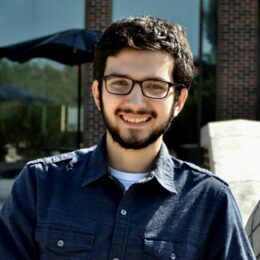
M. Rodrigo Castellanos
M. Rodrigo Castellanos is a postdoctoral Researcher in the Department of Electrical and Computer Engineering at North Carolina State University. He completed his Ph.D. in electrical engineering at Purdue University, where he also received the B.S. degree (with highest distinction). During the summers of 2017 and 2019, he was a research intern at Qualcomm Flarion Technologies, Bridgewater, NJ, USA and at Nokia Networks, Naperville, IL, USA, respectively. His current research interests are in massive MIMO, millimeter wave communication, and multi-antenna systems with user exposure constraints, and applications of electromagnetic theory in wireless systems.
Graduate students

Shehla Amir
Shehla Amir is PhD student in the department of Electrical and computer engineering at North Carolina State University since Spring 2022. She obtained her BS in Electrical Engineering from Lahore University of management sciences, Lahore, Pakistan in 2021. Her research interests include the areas of joint communication radar and sensing, signal processing and wireless communications.
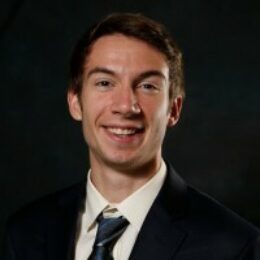
Joey Carlson
Joey Carlson is a PhD student in the Department of Electrical and Computer Engineering at North Carolina State University. He graduated from the Ohio State University in Spring 2021 with a BS in Engineering Physics and began working under the supervision of Professor Robert Heath at North Carolina State University in Fall 2021. His research interests include reconfigurable intelligent surface modeling and antenna design for MIMO applications.

Nitish Vikas Deshpande
Nitish Vikas Deshpande is pursuing the Ph.D. degree in the department of Electrical and Computer Engineering at University of California San Diego under the supervision of Prof. Robert W. Heath Jr. He received the B.Tech. degree in Electrical Engineering from Indian Institute of Technology, Kanpur, India in 2021 and the M.S degree from North Carolina State University in 2023. He worked as a summer research intern in the radio systems research department at Nokia Bell Labs in 2022 and 2023 where he received the outstanding student research award. He is also a recipient of the Qualcomm Innovation Fellowship for 2023-24. His research interests lie in the areas of signal processing and optimization for advanced MIMO communication systems. Currently, he is focusing on reconfigurable antennas and matching networks for wideband.
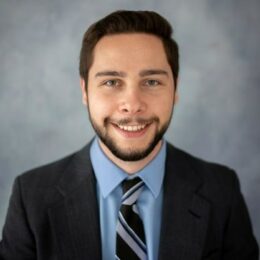
Ryan Dreifuerst
Ryan Dreifuerst is a PhD student at North Carolina State University. He obtained his B.S. in Electrical Engineering from Milwaukee School of Engineering with minors in Mathematics and Physics. He also received his B.S. in Electrical and Communications Engineering from Technische Hochschule L{“u}beck. He received his M.S in Electrical Engineering at The University of Texas at Austin (UT Austin). Ryan has worked with industry partners on advancing the Open Radio Access Network (ORAN) initiative and spent the last two summers researching 5G and 6G innovations with Qualcomm and Samsung Research America. His research lies at the intersection of machine learning and signal processing. Specifically, Ryan has focused on augmenting machine learning with domain knowledge for physical layer processing in wireless communications and signal processing.
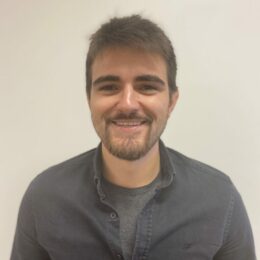
Ibrahim Kilinc
Ibrahim Kilinc is a PhD student at North Carolina State University. He received his B.S. in Electrical and Electronics Engineering and his minor degree in Information Systems and Technologies from Bilkent University, Ankara, Turkey, in 2023. He started to work under the supervision of Prof. Robert W. Heath Jr. in Fall 2023. His research interests include sensor-aided beam alignment in heterogeneous devices in wireless systems and signal processing.
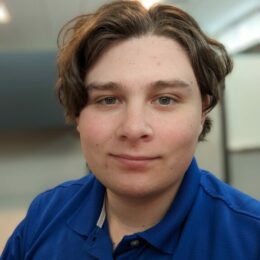
Chris Mori
Christopher Mori received B.S. degrees in Electrical and Computer Engineering from North Carolina State University in 2023. He is currently pursuing a Ph.D. in Electrical Engineering at North Carolina State University under the supervision of Prof. Robert W. Heath. His research interests are broadly in the realm of signal processing and MIMO systems as they relate to wireless communications.
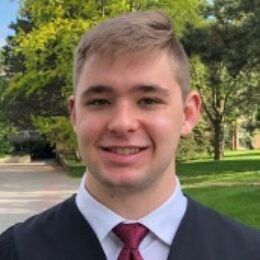
Nicholas Olson
Nicholas Olson recieved the B.S. degree in Electrical Engineering With Distinction from the University of Waterloo, Waterloo, ON, in 2019 and was a recipient of the Sandford Fleming Foundation (SFF) Award for Academic Excellence. He is currently pursuing the Ph.D. in wireless communications at the University of Texas (UT) at Austin in the Department of Electrical Engineering. He has previously held internships at MIT Lincoln Laboratory and is currently a Graduate Research Assitant affiliated withe Wireless Networking and Communication Group (WNCG) and 6G@UT research center at UT Austin. He is also advised by Prof. Jeff Andrews.
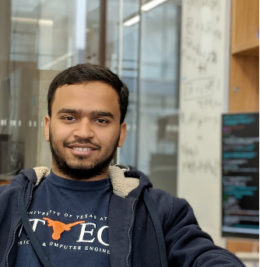
Kartik Patel
Kartik Patel received the B.Tech. degree in electronics and communication engineering from the Indian Institute of Technology (IIT) Roorkee in 2017 and M.S. degree in electrical and computer engineering (ECE) from The University of Texas at Austin (UT Austin) in 2020. He is currently Ph.D. candidate in ECE department at UT Austin. His research interests lie at the intersection of wireless networks, sensing, and machine learning with active focus on validating proposed solution on experimental testbed. His recent research is focused on developing and experimentally validating joint PHY/MAC layer solutions for mmWave networks and cellular network optimization. He is also advised by Prof. Sanjay Shakkottai.

Xiaowen Tian
Xiaowen Tian is a Ph.D. student in the Department of Electrical and Computer Engineering at North Carolina State University. She received her B.E. degree in Electronic Information Engineering, and her M.E. degree in Information and Communication Engineering, from Dalian University of Technology, Dalian, China, in 2016 and 2019. Her research interests span the broad areas of signal processing and wireless communications. Currently, she is working on reconfigurable intelligent surfaces-assisted systems. She is also advised by Prof. Nuria Gonzalez Prelcic.
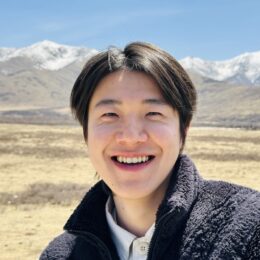
Feng Zhu
Feng Zhu received his B.S. degree in Communication Engineering and his M.S. degree in Communications and Information Systems from Fudan University, Shanghai, China in 2020 and 2023, respectively. He is currently a Ph.D. student in the Department of Electrical and Computer Engineering. His research interests include federated learning, reinforcement learning and their applications in the wireless system. He is also advised by Prof. Aritra Mitra.